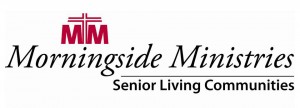 Thousands of U.S. taxpayers have fallen victim to the largest phone fraud scam – collectively paying over $1 million to scammers impersonating as IRS officials. “This is the largest scam of its kind we have ever seen and has hit nearly every state in the country,” reported Inspector General J. Russell George of the Treasury Inspector General for Tax Administration (TIGTA).
Thousands of U.S. taxpayers have fallen victim to the largest phone fraud scam – collectively paying over $1 million to scammers impersonating as IRS officials. “This is the largest scam of its kind we have ever seen and has hit nearly every state in the country,” reported Inspector General J. Russell George of the Treasury Inspector General for Tax Administration (TIGTA).
Prying on the fears of taxpayers during tax filing season, the scammers have developed a sophisticated phone scam. TIGTA warns taxpayers to understand how the scam works and what should be regarded as a red flag the individual on the other end of the phone is not employed by the IRS.
This Is How It Works
- Caller claims to be from the IRS
- Victim is told they owe taxes and must make a payment using a prepaid debit card or wire transfer
- Caller threatens victim they will be arrested, deported, or will lose their business or drivers license if they do not cooperate
- Fake IRS emails are sent to support the scam
- Scammers call a second time posing as the police or Department of Motor Vehicles (DMV)
The callers have a tendency to use common names and fake IRS badge numbers and in an effort to make the call seem official will provide the last four digits of the victim’s Social Security number. In addition, they alter caller ID information so it displays as coming from the IRS, local police, or DMV.
Red Flags Are Waving
TIGTA stated that understanding how the scam works is the best way taxpayers can protect themselves. Also, understanding how the IRS contacts taxpayers who do owe money is critical. George explained that the IRS utilizes mail – not the phone – to make initial contact with a taxpayer. He also went on to say the IRS does not ask for payment using a prepaid debit card or wire transfer, and the agency never accepts credit card information over the phone – nor does the agency request personal or financial information by email, texting, or social media.
What to Do If You Receive a Fraudulent Call or Email
Should you receive a call or email from a scammer, follow these steps to protect yourself:
- If you owe taxes or think you owe taxes, hang-up the phone and call the IRS at 800.829.1040. IRS workers can assist with your questions.
- If you don’t owe taxes, report the incident to TIGTA at 800.366.4484. You can also file a complaint with the Federal Trade Commission at www.FTC.gov – add “IRS Telephone Scam” to the comments in your complaint.
- Forward fraudulent emails to phishing@irs.gov. NEVER click on links found in the email or open an attachment.
We hope you find this alert helpful in keeping you informed about the latest news affecting U.S. taxpayers. For assistance with your tax needs or questions, contact your tax professional today at 210.828.6281 or 512.476.0717.



 It is hard to not be concerned with the amount of fraud and theft that is being suffered by our elders. According to the National Consumers League’s National Fraud Information Center, nearly a third of all telemarketing fraud victims are age 60 or older. Their strategies and tactics may differ, but these organizations are most interested in taking financial advantage of unsuspecting, trusting individuals.
It is hard to not be concerned with the amount of fraud and theft that is being suffered by our elders. According to the National Consumers League’s National Fraud Information Center, nearly a third of all telemarketing fraud victims are age 60 or older. Their strategies and tactics may differ, but these organizations are most interested in taking financial advantage of unsuspecting, trusting individuals.